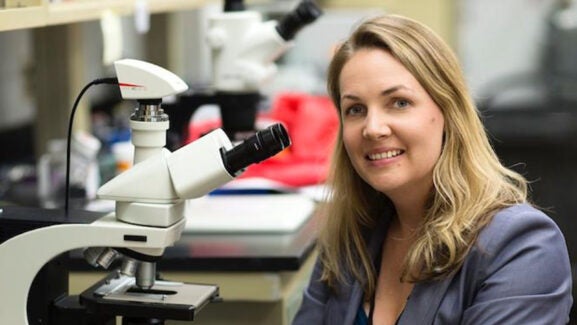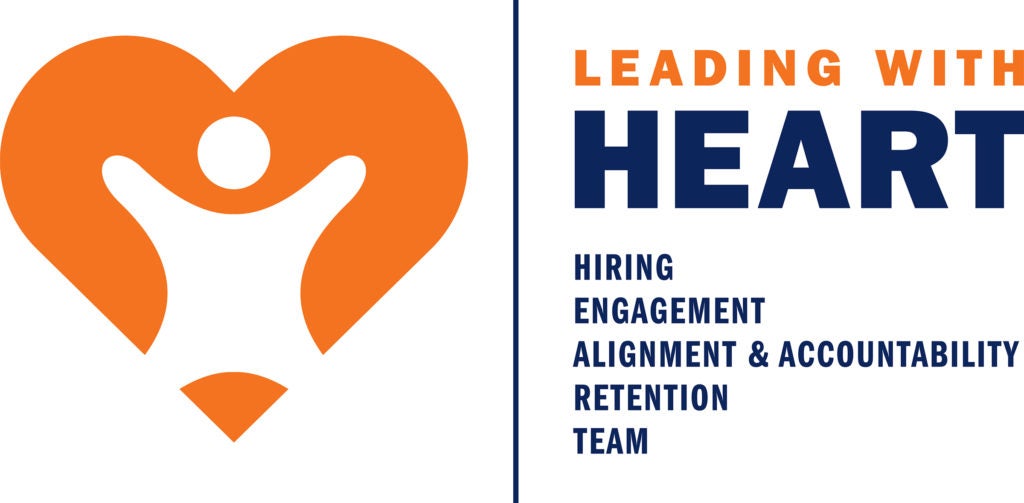
Everyone Needs a ‘Baby’: 4 Ways Shared Success Fosters Teamwork and Expertise
Every day at the Battle Building Maternal and Fetal Health Clinic, Abby Southerland, manager, and Nancy Spindel, charge nurse, see the impact teamwork can have on a hospital. Under their leadership, the team has developed a culture of proactive support and engagement with positive results for clinicians and patients.
“There's a lot of passion on this team, and people are happiest when they’re working with people who have the same passion. That shared passion and the resulting happiness mean we’re all more likely to succeed!” declares Southerland.
Spindel agrees, and adds there has been a definite catalyst for this culture: Southerland’s leadership. “We just feel that she believes in us,” compliments Spindel. “It's so energizing to be heard, to feel like your leader is listening to you.”
While they've been at UVA Health for more than a decade, they've only had the opportunity to work together for two years now — but it's been more than enough time to develop the collaborative culture for which the clinic is recognized widely.
And Southerland and Spindel would never claim sole credit for this success, but they do have some helpful tips to share with other teams to promote collaboration and engagement:
1. Expect Support in Unexpected Moments
Like at most units at the hospital, surprises can occur daily at the Battle Building Maternal and Fetal Health Clinic. But no matter the surprise, team members know they can rely on one another.
Whether it’s a newborn requiring extra care, a room in need of a quick clean before the next patient, or a lunch break spent comforting a patient — every team member feels equipped to go above and beyond because they trust their teammates to support them.
For example, when a young mother came to the clinic hoping to explore birth control options, one nurse was able to help her through the process of getting an IUD more effectively because a colleague volunteered to care for the mom’s nursing baby. Southerland sees this type of collaboration often. “The team is there to guide each other and patients through any situation. We all work together to make sure babies are tucked in, families are alerted of changes in care, and every colleague knows where to go for support.”
Knowing their teammates are willing to go the extra mile and tackle any extra work that might come up during a shift allows everyone to lean into what they love most about their jobs: caring for patients.
2. Offer Supportive and Trusting Leadership
When asked why the unit is so engaged, Southerland is quick to attribute a great deal of that success to Spindel. “Nancy is so positive every day and during every huddle. She's energetic, always giving people shout-outs, and investing time and care in her team.”
Spindel recognizes her positive energy and leadership style are made possible because of her team. “My role is more to get out of the way rather than to try to micromanage a team of high performers. I truly trust every member of the team and know I can rely on them.”
By creating space for her team to operate on their own while also being there for support when it’s needed, she has empowered her team to take responsibility for their work and, ultimately, their success. That success could be the normal day-to-day care given to new mothers or it could be an outside achievement.
“Someone told me a long time ago that success breeds success," says Spindel. "I love that motto. I love when someone on our team who wants an advanced degree gets it, or when someone goes to a conference, learns the coolest stuff, and comes back to share.”
3. Communicate — Internally and Externally
Southerland and Spindel understand the challenges faced by new parents. They know there’s a wealth of information out there and that it’s not always easy to know where to go for the most accurate advice on newborn care.
“UVA Health has the structure in place to educate parents on evidence-based practice (EBP) guidelines, including for safe sleep and breastfeeding,” says Southerland. “We take responsibility for educating families going home with a newborn for the first time.” The team provides several learning opportunities for families, including virtual town halls where patients are encouraged to ask questions.
This opportunity also has prompted the team to develop better internal communication around EBPs. Southerland explains, “Before making any judgments or decisions, you really need to have investigated and made sure you have all the facts.”
Huddle boards are a great example of how this improved internal communication comes to life. Every morning, the team circles for shout-outs, accomplishments, and discussion. It’s a way to communicate wins, as well as to touch base on new or updated best practices. Huddle boards keep the team talking to one another professionally and personally, helping with team spirt and engagement.
4. Nurture Individual Expertise
Spindel and Southerland understand that when members of a tight knit team experience individual growth, it benefits the whole team. Each team member becomes an expert in a specific area, and the team acknowledges that individual as the expert.
As Spindel says, “Everybody needs a 'baby' — meaning you need some area of expertise to nurture. It could be something as simple as putting sheets on the shelf, but you need something that encourages people to come to you and engage with you as the expert.” A team of experts can rely more readily on one another and operate more effectively since they now know where to go for support.
Spindel and Southerland have seen firsthand how this individual expertise leads to shared success and team spirit. “Everybody really appreciates one other because without each other, we wouldn't be able to function,” notes Spindel.
Southerland's expertise is leadership, and she recognizes how this team enables her to nurture that ability. “I feel so lucky that I found this team and they've taken me under their wing. I'm able to grow with them because I have found where I belong!”
Latest News




